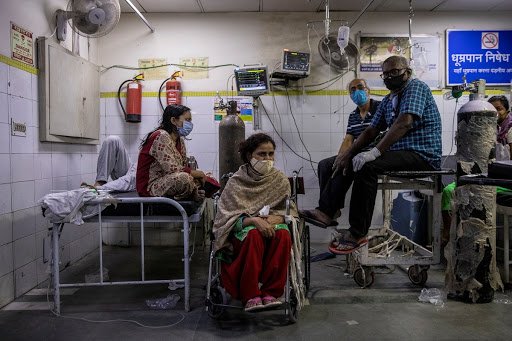Indian doctors note rise of ‘black fungus’ in COVID-19 patients
Indian doctors are discovering a rash of new infections known as the “black fungus” as the country battles to contain an exploding COVID-19 outbreak.
Technically known as mucormycosis, the infection is thought to be flourishing in positive COVID-19 cases whose suppressed immune systems are leaving them defenceless.
Called the “black fungus” because victims often display black patches of skin around their nose, the infection affects the sinuses and eventually the patient’s vision.

Many sufferers are forced to have their eyes surgically removed as surgeons work to stop the infection from reaching the brain.
An Indian doctor told the BBC he has already seen 40 cases of mucormycosis this year.
Typically he would see five and under cases of the infection outside of a global pandemic.
India case numbers dip but death toll still heavy
India’s daily COVID-19 cases have dipped from the highs of recent days, with 366,161 new positive results.
A further 3754 people have also died, according to the India Health Ministry, bringing the total death toll to 246,116.
Health experts fear case numbers are being underreported as the country’s health system continues to stagger underneath the massive burden.

India’s Supreme Court said at the weekend it would set up a national task force consisting of top experts and doctors to conduct an “oxygen audit” to determine whether supplies from the federal government were reaching states.
Complaints of oxygen shortages have dominated the top court recently, which just stepped in to make sure the federal government provided more medical oxygen to hospitals in the capital, New Delhi.








